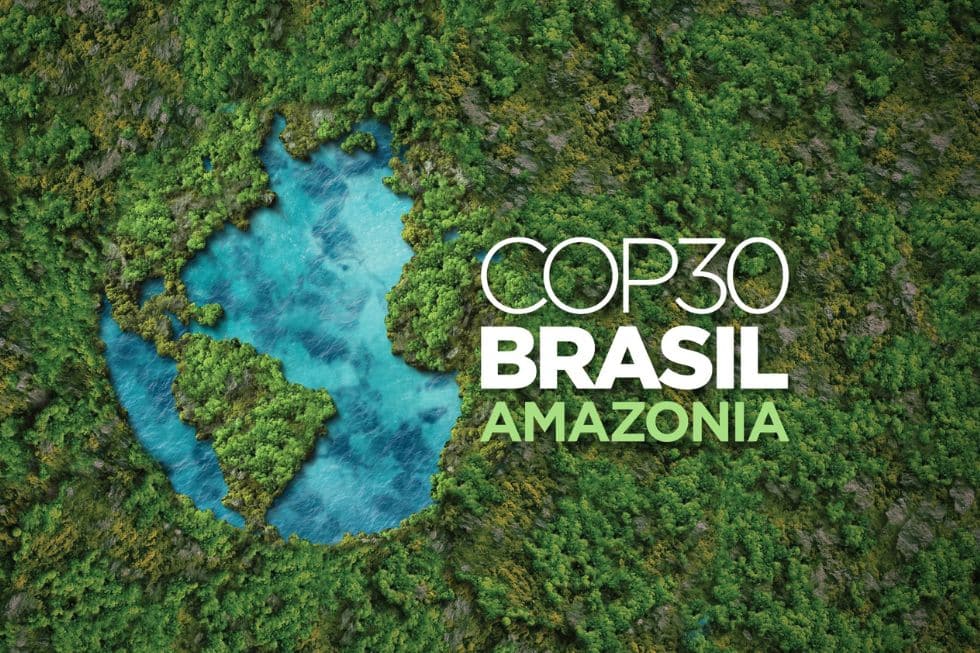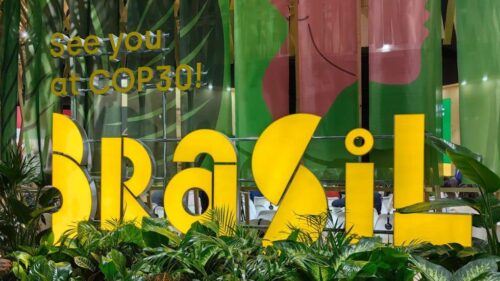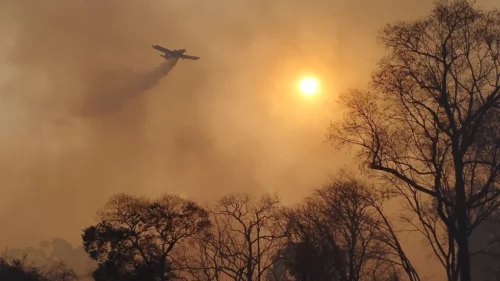Amid a global climate emergency and growing denialism, Brazil is preparing to host the 30th Conference of the Parties (COP30) in Belém, in the Amazon, this month. The challenge is colossal: to transform empty promises into concrete actions to save a planet that has already temporarily exceeded the 1.5°C warming limit set by the Paris Agreement a decade ago.
The choice of Belém is no accident. It is an urgent call to action in one of the world’s most vital and threatened biomes. But with powerful nations backing away from their commitments and fossil fuel industry lobbyists infiltrating the negotiations, cautious optimism clashes with the harsh reality of a crisis that is advancing faster than any response.
“The ceiling is already practically broken”
Luiz Villares, a leader in sustainability in the Amazon and executive of socioenvironmental projects, sounds the alarm about the urgency of the moment. “COP30 will mark the first decade of the Paris Agreement, coming a year after we passed the 1.5°C limit for global warming, the main goal of Paris”, he says. This is not a projection of the future, but a present reality. What was once a goal to be avoided is now a milestone that has already been reached, triggering increasingly severe climate consequences.
The scientific community is unanimous: every additional tenth of a degree of global warming represents an exponentially greater risk to life on Earth. With the 1.5°C ceiling close to being compromised, humanity is dangerously approaching the 2°C limit, a point of no return that, according to experts, would bring “very uncomfortable impacts for human life and the survival of many animal and plant species”.
Historically, climate discussions have focused on mitigation, i.e., reducing emissions. Adaptation — how to protect communities, infrastructure and ecosystems from the already visible effects of climate change — was seen as a “B-side”, a lower priority. However, inaction and unfulfilled commitments have dramatically changed that perception.
“Adaptation has become the ’A-side’ of climate change for all the reasons of urgency for possible life on the planet”, emphasizes Villares. This means that, in addition to trying to slow down warming, the world now needs to invest heavily in measures to deal with droughts, floods, heat waves and extreme events that are already intensifying. Global infrastructure is not prepared, and the costs of this adaptation are astronomical and growing.
The hidden power of the fossil fuel industry and climate denial
Global inertia in the face of the climate crisis is no accident. In-depth investigation reveals that the fossil fuel industry has played a central role in spreading misinformation and blocking effective climate action for decades. “The oil industry, with more than 1.5 trillion barrels in reserves, has been promoting climate denial since the 1970s”, reveals Villares, citing internal studies that large companies in the sector already had on the risks of fossil fuels, but chose to “ignore and shelve.”
In addition to concealing research, these companies have funded “denialist think tanks with hundreds of millions of dollars, promoting a powerful lobby of misinformation”. The overwhelming presence of fossil fuel lobbyists at COPs, outnumbering delegations from vulnerable nations, is proof of the power and influence that undermine diplomatic efforts. “After 30 years of diplomatic meetings, we have failed to curb the climate crisis, let alone help the poorest and most vulnerable countries protect themselves from climate change”, Villares laments.
Despite the challenges, COP30 in Belém represents a unique opportunity. Unlike the last conferences held in “petro-states” such as Azerbaijan (COP29) and the United Arab Emirates (COP28), “Belém brings elements that differentiate it from previous editions. It is the first time in three years that a climate conference will not take place in an oil-producing country, and the meeting will be held in a democratic country, welcoming demonstrations by civil society”, Villares points out.
Brazil proposes to lead with three guidelines: promoting multilateralism, connecting the climate regime to people’s real lives and accelerating the implementation of the Paris Agreement.
Multilateralism is crucial, especially in the face of governments such as President Donald Trump’s in the US, which demonstrate climate denialism. “The United States’ withdrawal from the Paris Agreement undermines its credibility as a global leader”, notes Villares, opening space for nations such as China and Brazil itself to strengthen their geopolitical influence on the climate agenda.
The great Brazilian paradox: preservation and oil
However, Brazil’s leadership at COP30 is not without contradictions. Although President Luiz Inácio Lula da Silva’s government has achieved a “50% reduction in deforestation in the Amazon” compared to the previous government of Jair Bolsonaro, there is a duality in energy policy. “The predicted growth in oil exploration, including in the Amazon estuary, reflects a situation of parallel desires in a nation oriented towards both the new green economy and the old fossil fuel economy”, points out Villares.
This ambiguity reflects a global problem: the energy transition is a “worldwide challenge”, where even nations committed to climate change face low popularity ratings for their leaders when implementing climate agendas that are “unpopular and highly costly to public budgets.”
The biggest obstacle to implementing climate goals is financing. Brazil advocates reforming the international financial system to reach $1.3 trillion annually for climate adaptation over the next decade. But the Nationally Determined Contributions (NDCs), which are the countries’ climate goals, show a “low commitment from most countries to the negotiations”. Only 31% of member states submitted revised NDCs in time for COP30.
Villares argues that climate financing should be structured under a “risk avoidance approach,” where “investments in prevention and building resilient structures are much cheaper than paying the bill after the damage is done”. Prevention today can cost “five times less than paying the bill after the damage”, a ratio that, according to some economists, could soon be 15 times higher.
The last call for life on the planet
The challenges are immense, and time is short. “The deadline for all this is eight years, or less”, warns Villares. If inaction persists, the predicted scenario is a “world rich in financial wealth in the hands of a few, and poor in biodiversity, with nature and ecosystems devastated, under indebted governments, unable to care for their people”.
COP30 in Belém is more than a climate conference. It is the final opportunity for Brazil and the world to come together in a collaborative, real and tangible effort. “The world really needs a real COP30,” concludes Villares. “Brazil presents itself to the world as the country that is implementing the global climate agenda.” Hope lies in Belém’s ability to force a reckoning with climate reality and usher in an era of decisive action.
[Kaitlyn Diana edited this piece.]
The views expressed in this article are the author’s own and do not necessarily reflect Fair Observer’s editorial policy.
Support Fair Observer
We rely on your support for our independence, diversity and quality.
For more than 10 years, Fair Observer has been free, fair and independent. No billionaire owns us, no advertisers control us. We are a reader-supported nonprofit. Unlike many other publications, we keep our content free for readers regardless of where they live or whether they can afford to pay. We have no paywalls and no ads.
In the post-truth era of fake news, echo chambers and filter bubbles, we publish a plurality of perspectives from around the world. Anyone can publish with us, but everyone goes through a rigorous editorial process. So, you get fact-checked, well-reasoned content instead of noise.
We publish 3,000+ voices from 90+ countries. We also conduct education and training programs
on subjects ranging from digital media and journalism to writing and critical thinking. This
doesn’t come cheap. Servers, editors, trainers and web developers cost
money.
Please consider supporting us on a regular basis as a recurring donor or a
sustaining member.
Will you support FO’s journalism?
We rely on your support for our independence, diversity and quality.








Comment